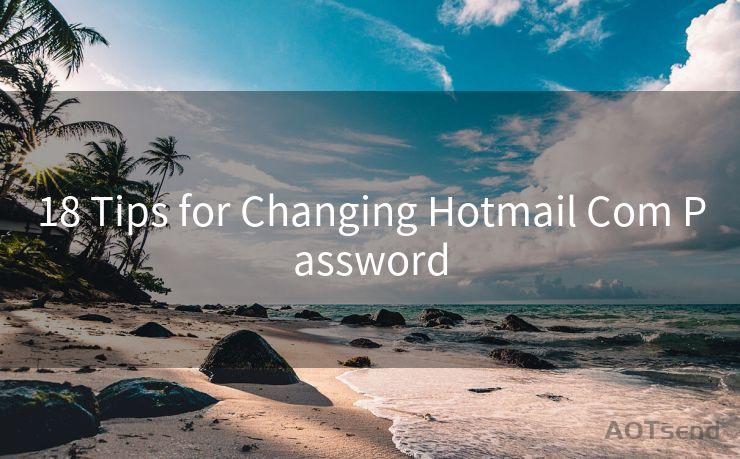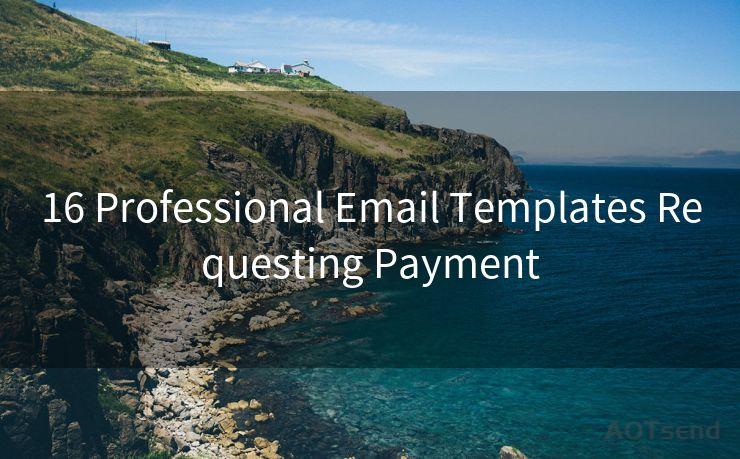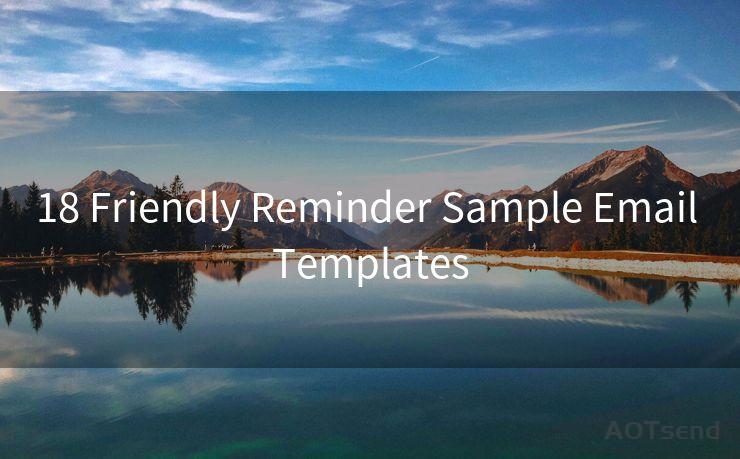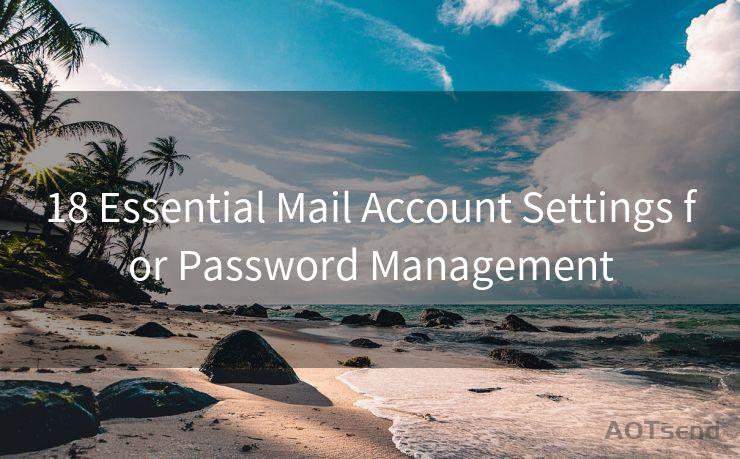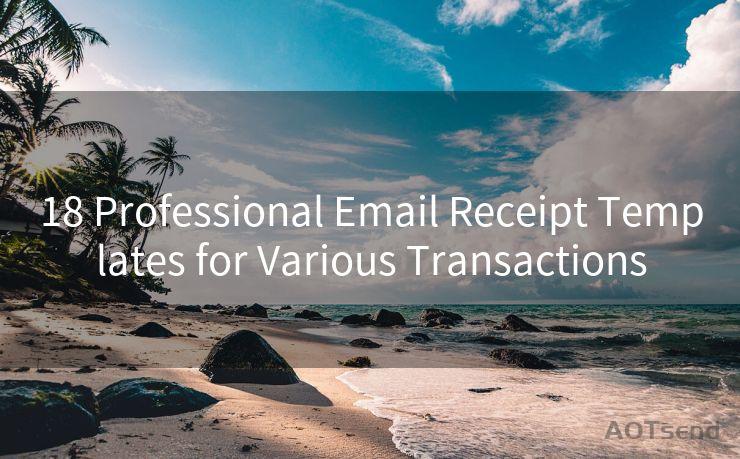17 Warning Signs of Fake Microsoft Account Team Emails




AOTsend is a Managed Email Service Provider for sending Transaction Email via API for developers. 99% Delivery, 98% Inbox rate. $0.28 per 1000 emails. Start for free. Pay as you go. Check Top 10 Advantages of Managed Email API
In the digital age, email has become a primary method of communication, making it a common target for scammers. One such scam involves fake emails claiming to be from the Microsoft Account Team. These emails often attempt to phish for personal information or spread malware. To protect yourself, it's crucial to recognize the warning signs of these fraudulent emails. Here are 17 red flags to help you identify fake Microsoft Account Team emails.
1. Suspicious Sender Address
The first thing to check is the sender's email address. Microsoft emails typically come from official domains like @microsoft.com. If the sender's address looks unusual or contains typos, it's likely a scam.
2. Urgent or Threatening Tone
Scammers often use urgent or threatening language to pressure you into action. Be wary of emails that demand immediate attention or threaten account suspension.
3. Poor Grammar and Spelling
Official emails from large companies like Microsoft are carefully written and proofread. If an email contains numerous spelling or grammatical errors, it's probably not genuine.
4. Unfamiliar Links
Hover over any links in the email to check their destination. If the URL looks suspicious or doesn't match Microsoft's official website, avoid clicking it.
5. Requests for Sensitive Information
Microsoft will never ask for sensitive personal information, such as passwords or credit card details, via email. Any such request is a sure sign of a scam.
6. Unexpected Attachments
Be cautious of emails with unexpected attachments, as they may contain malware. Never open attachments from unknown or suspicious senders.
7. Generic Greeting
Official emails from Microsoft will often address you by name. If an email starts with a generic greeting like "Dear User" or "Dear Customer," it's more likely to be a scam.
8. Odd Formatting or Layout
Fake emails may have unusual formatting, such as mismatched fonts, colors, or layout issues. These are signs that the email may not be from a professional source.
9. Unsolicited Offers
Be wary of unsolicited offers, such as free software upgrades or discounts on Microsoft products. These are common tactics used by scammers to lure unsuspecting users.
10. Fake Invoices or Bills
Scammers may send fake invoices or bills claiming you owe money to Microsoft. Always verify such claims directly with Microsoft before making any payments.
11. Phishing for Information
Some fake emails may contain surveys or questionnaires asking for personal information. Microsoft will not ask for such information via email.
12. Threats of Account Closure
Emails threatening to close your account if you don't take immediate action are often scams. Always contact Microsoft directly to verify any such claims.

13. Unusual Requests
Be suspicious of any unusual requests, such as asking you to forward the email to multiple recipients or to reply with sensitive information.
14. Fake Copyright Infringement Notices
Scammers may send fake copyright infringement notices claiming that your account has been used to distribute pirated content. Always verify such claims with Microsoft directly.
15. Phony Job Offers
Be cautious of emails claiming to offer you a job at Microsoft, especially if they ask for personal information or money.
16. Missing or Incorrect Contact Information
Official emails from Microsoft will always include accurate contact information. If an email is missing this information or contains incorrect details, it's probably a scam.
17. Unsolicited Technical Support
Be wary of unsolicited offers of technical support, especially if they require remote access to your computer. These are often scams designed to steal your personal information or infect your computer with malware.
By being aware of these 17 warning signs, you can protect yourself from falling victim to fake Microsoft Account Team emails. Remember, if you're unsure about an email's authenticity, it's always best to err on the side of caution and contact Microsoft directly for verification.
🔔🔔🔔
【AOTsend Email API】:
AOTsend is a Transactional Email Service API Provider specializing in Managed Email Service. 99% Delivery, 98% Inbox Rate. $0.28 per 1000 Emails.
AOT means Always On Time for email delivery.
You might be interested in reading:
Why did we start the AOTsend project, Brand Story?
What is a Managed Email API, Any Special?
Best 25+ Email Marketing Platforms (Authority,Keywords&Traffic Comparison)
Best 24+ Email Marketing Service (Price, Pros&Cons Comparison)
Email APIs vs SMTP: How they Works, Any Difference?




AOTsend adopts the decoupled architecture on email service design. Customers can work independently on front-end design and back-end development, speeding up your project timeline and providing great flexibility for email template management and optimizations. Check Top 10 Advantages of Managed Email API. 99% Delivery, 98% Inbox rate. $0.28 per 1000 emails. Start for free. Pay as you go.
Scan the QR code to access on your mobile device.
Copyright notice: This article is published by AotSend. Reproduction requires attribution.
Article Link:https://www.aotsend.com/blog/p10329.html


